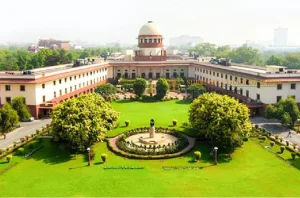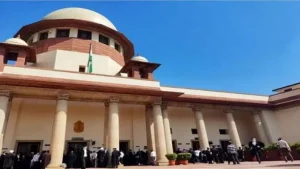

Combating Frivolous Litigation
- /
- Articles and Blogposts /
- Combating Frivolous Litigation
The recent decision of the Punjab and Haryana High Court, in a case where the petitioner wanted to take legal action against Prince Harry gained much attention the last few weeks. At the outset, a petition of this nature provides some entertainment value, but on closer scrutiny it throws light on the problem of frivolous petitions.
The terms frivolous, vexatious and meritless litigation refer to distinct types of cases but are debated and discussed often to be the same. As regards frivolous and vexatious litigation, there is some consensus that they should be nipped in the first possible instance to save the court’s time. In the Indian context, the 192nd Law Commission Report dealt with the prevention of vexatious litigation. It highlighted that the prevention of vexatious litigation will deter a person from approaching the courts habitually and without reasonable ground. The report distinctly stayed away from delving into the concept of frivolous litigation and what could be construed as frivolous litigation, noting that the same requires independent analysis as the concept is different from vexatious litigation.
In the context of PILs in India, attention has been drawn to the fact that the frivolous PILs usurp valuable court time and there is not enough done in terms of restricting these frivolous petitions. Specific guidelines have been issued by the Supreme Court in terms of PILs to be taken up from letters etc. This could be construed as a response to regulate the inflow of frivolous PILs.
In the context of civil litigation, the Supreme Court in Ramrameshwari Devi v. Nirmala Devi, stated that:
“In order to curb uncalled for and frivolous litigation, the courts have to ensure that there is no incentive or motive for uncalled for litigation. It is a matter of common experience that courts’ otherwise scarce and valuable time is consumed or more appropriately wasted in a large number of uncalled for cases.”
This statement also seems to indicate that the court is referring to both meritless litigation and frivolous litigation. This further reiterates the need to engage with what is frivolous litigation within the parameters of our justice system. The judgment went on to highlight the issues with pursuing frivolous litigation and imposed costs; it did not conceptually deal with what qualifies as frivolous litigation.
Scholars urge that there is a need to distinguish between frivolous litigation and meritless litigation. The courts tend to consider the litigants who misuse the system by filing countless petitions as frivolous litigation. This is a complicated problem. In the adversarial process, litigants often resort to practices that may lead to stalling a case. While this may not necessarily be a frivolous litigation, it could be a meritless litigation filed to game the system. Nevertheless, it would still qualify as an abuse of process of the court and perhaps may need other sanctions. Meritless and frivolous litigation are often conflated and thus need closer analysis. Frivolous claims are said to be easier to identify as they are not based on legal theories and often rely on fantastical factual allegations.
It is important to weed out frivolous litigation as it accentuates the pressure on judicial resources and is a drain on judicial administration. Some scholars still see value in meritless litigation, stating that it can still be of some help to the judiciary, especially when the same leads to a clarification or development of law. To combat frivolous litigation, one school of thought recommends increasing court fee to discourage filing of such cases. The Supreme Court of India took a different view and suggested that frivolous and vexatious litigation ought to be dealt with independently and should not be linked to increase in the court fee. It clarified that the court fee has been increased over course of time and is not necessarily a deterrent against frivolous litigation.
In the Indian context, frivolous litigation is believed to be offset if adequate cost sanctions are imposed. While this article is not offering solutions on how to filter frivolous litigation, it aims to highlight the need to engage with the problem of frivolous litigation. The disadvantage with not engaging with frivolous litigation can lead to us to overlook an issue that may accentuate the problem of usurping valuable court time. The time taken to list, hear and order cost sanctions on frivolous cases are a waste of scarce judicial resources. There is a need to conceptually engage with what can be frivolous litigation and contemplate if there can be guidelines to accompany the treatment of frivolous litigation. A good place to start the analysis could be the writ jurisdiction where there have been complaints about excessive filing of frivolous petitions.
The views expressed in this article are solely those of the author’s and they do not represent the views of DAKSH.

Sandhya PR
RECENT ARTICLES


Lessons for Judiciary from Space Sector

The missing piece in India’s reform story—a strong tribunal system

Fast-track courts may not be the cure

-
Rule of Law ProjectRule of Law Project
-
Access to Justice SurveyAccess to Justice Survey
-
BlogBlog
-
Contact UsContact Us
-
Statistics and ReportsStatistics and Reports
© 2021 DAKSH India. All rights reserved
Powered by Oy Media Solutions
Designed by GGWP Design